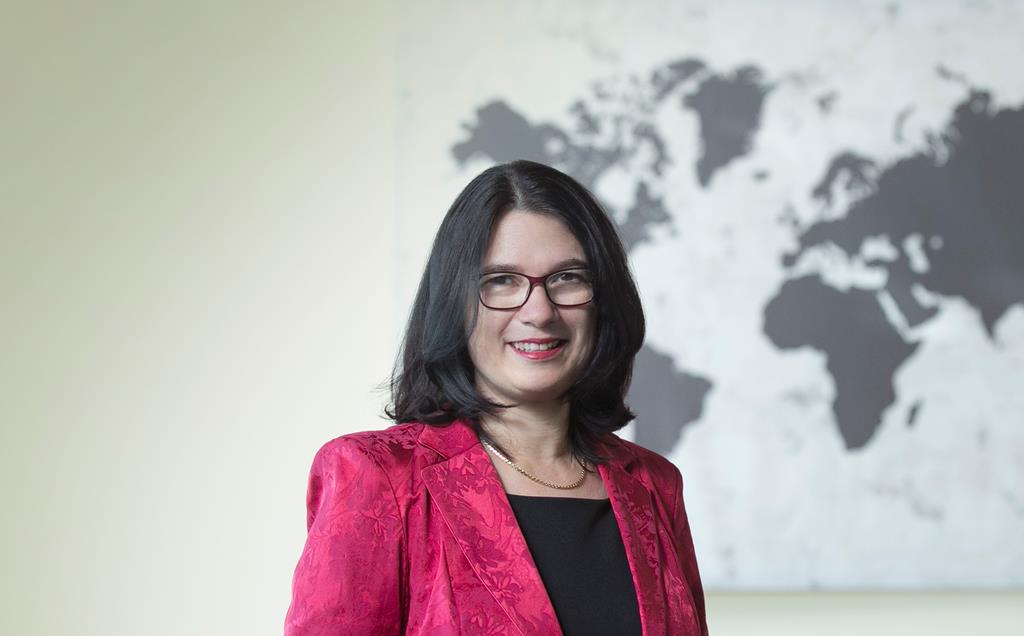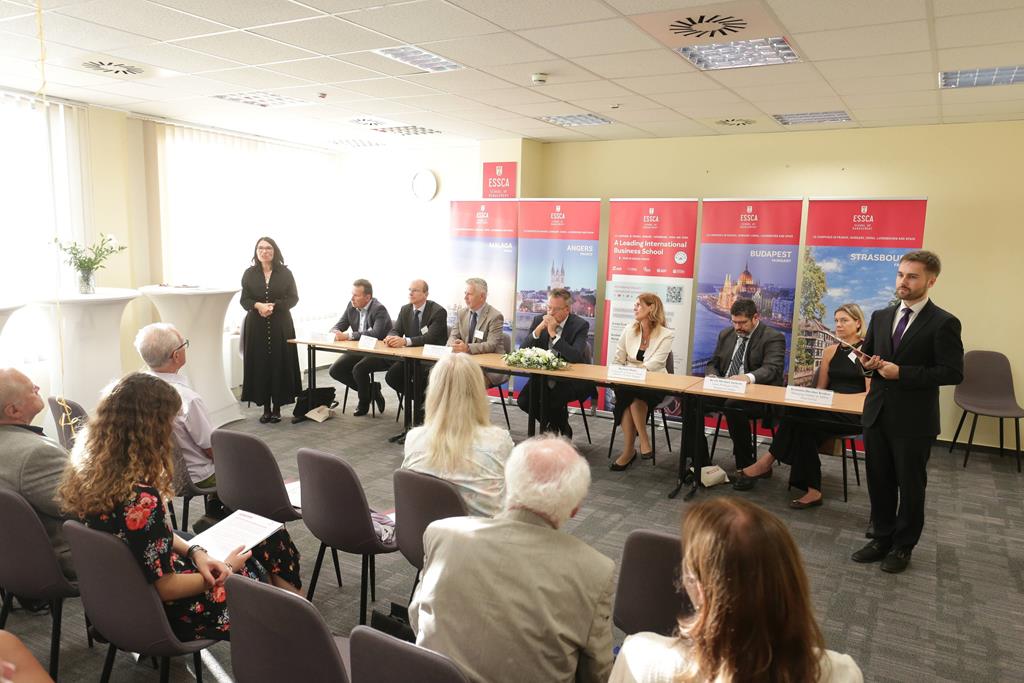Change language:
French university with the best management courses worldwide celebrated Budapest campus

A distinguished place on the Financial Times’ list as being among the best management courses worldwide; the “Triple Crown” designation, the highest qualification of the profession; strong, humane values – all these characterize the institution of the ESSCA School of Management, which established its campus in Budapest thirty years ago. On the occasion of the anniversary, the School launched a series of exclusive festive events during the spring of 2023 showcasing professionalism, cultural diversity, vibrant student life, and sustainability.
“30 years ago, ESSCA began its internationalisation process by establishing its first European campus in Budapest. At the time, it was an ambitious strategy aimed at providing quality education and management skills to an economy that was in the process of opening up to the European and Western markets. Today we are proud that ESSCA is the only French business school in Hungary that provides a diploma labelled by the Conférence des Grandes Ecoles” says Jean Charroin, the CEO and Dean of ESSCA.
“The ESSCA School of Management, founded 114 years ago, was built on stable, strong core values, which serve as the foundation of the School’s existence and operation to this day. However, ESSCA also places special emphasis on connecting these values with the constantly evolving technological, social, and economic expectations, solutions and challenges, and taking these into account, it implements its operations and contributes to shaping the trends of the education market.” says Dr. Zsuzsa Deli-Gray, the Campus Director of ESSCA Budapest, Professor.
Read also:
- THE Ranking: Hungarian university in the world’s best 1%, ten others in the best 5% – Read more HERE
- New European QS university ranking: Hungarian universities in the top

An excellent example of this is the School’s aim to reorganize its campuses and processes in accordance with the requirements of sustainable development, or the intentional integration of artificial intelligence into specific processes of ESSCA, including education. 2023 is an exceptional year in the life of ESSCA, as – in addition to Budapest – the Paris Campus is also celebrating its 30th anniversary. The School opened its Luxembourg and Malaga Campuses this year, and will also inaugurate a new facility at its Bordeaux Campus.
With an innovative approach ESSCA is launching a series of conferences during the fall of 2023, where the School’s colleagues and partners elaborate on the impact of artificial intelligence on various industries in many parts of the world. The first event of the series will take place at the Budapest Campus, where thought-provoking lectures will be followed by professional discussions. In order to expand on the topic, ESSCA invited a roster of prestigious speakers who originated from various professional fields and industries and who are looking for answers to which areas are most and least affected by the rapid development of artificial intelligence and how each industry should respond to this.

“The ESSCA School of Management does not regard artificial intelligence as a threat, but rather as an opportunity. If through careful consideration it is integrated into various processes of the School on the basis of professional aspects, it can bring benefits to all parties, whether it is about systematically preparing the students, teachers and researchers for the individual fields of application and methods or highlighting its economic, technical and ethical concerns and consequences.” says Dr. Zsuzsa Deli-Gray, the Campus Director of ESSCA Budapest, Professor.
“The impact of generative AI is undeniably profound” says Dr. Balázs Vaszkun, Alumnus, Managing Director of Galloman Translation and Interpreting Agency.
How each industry responds to the surge of artificial intelligence can vary greatly. However, according to experts, there is a consensus on one thing: artificial intelligence must not take over human competences. “Technological innovation inevitably pushes boundaries, but we must thoughtfully shape its trajectory rather than let it control us. While certain jobs will be automated by AI, the technology is also poised to create new kinds of jobs and change existing roles in ways that augment, rather than replace, human capabilities so fear of widespread unemployment is likely exaggerated.” says Dr. László Károlyi, CEO of LEGRAND Hungary and President of the French-Hungarian Chamber of Commerce and Industry, one of the invited speakers of the panel discussion.

“AI should be used as a tool to enhance human decision-making and not as a substitute for the expertise and judgment of climate and energy policymakers and scientists.” says Dr. Barbara Botos, Ambassador at- large for Climate, Ministry of Energy, Hungary. If you observe individual industries, you can see that all areas are effected in a varying degree. “Executive search organizations can often seem a bit conservative and classic. Based on their methodology, they rely heavily on individual connections, networks, market research activities with a consulting approach and an advisory mindset. At first, it may seem that the world of AI may have less impact on the ES methodology. But can something survive that does not change or progress with the times? Does AI threaten the raison d’être of executive search?” says Krisztina Dávidné Krokos, Managing Partner at Arthur Hunt Group.
“While important efforts have already been made, the objectives of Sustainable Development are more urging than ever. Still, there are a number of areas where our knowledge is not sufficient and Artificial Intelligence may play an important role. With the analysis and evaluation of big data and the building of appropriate scenarios, artificial intelligence may be able to fill some of these gaps, which may be crucial in our quest for survival on the planet.” says Dr. Gyula Zilahy, Full Professor of Business Sustainability at the Budapest University of Technology and Economics.
The future impact of artificial intelligence on certain areas cannot be unequivocally estimated. Witnessing its rapid development and expansion, we cannot even comprehend at what pace it will continue to spread. “While AI is very exciting and will undoubtedly change the world we live in, our expectations need to be tempered and we must acknowledge it is not a quick fix to society’s problems” says Dr. Kevin Jackson, Guest Professor of the Budapest Campus Educational and research institutions can have a prominent role in the analysis of challenges induced artificial intelligence, in the development of potential responses, and in the investigation of the impact mechanisms as well.
“At a time affected by international geopolitical tensions and the challenges of ecological and digital transitions, at ESSCA we are convinced of the fundamental role that higher education and research institutions must play in contributing to the strengthening of cross-border synergies and the development of cultural diplomacy cooperations.” says Jean Charroin, the CEO and Dean of ESSCA.

About ESSCA
The institution was founded in Angers, France in 1909. The Budapest campus of ESSCA was founded in 1993, and welcomes 750 students from 30 different countries annually. The university has been a member of Conférence des Grandes Écoles since 1977. Uniquely among Hungarian universities it received accreditations from EQUIS, AACSB and AMBA, otherwise known as „the Triple Crown”. The Financial Times has ranked its institution among the best business schools worldwide. With its campus located in the heart of Budapest and a vibrant student life the institution which represents international diversity, pure values and sustainability, alongside mental development also emphasizes on the physical wellbeing of its students.







